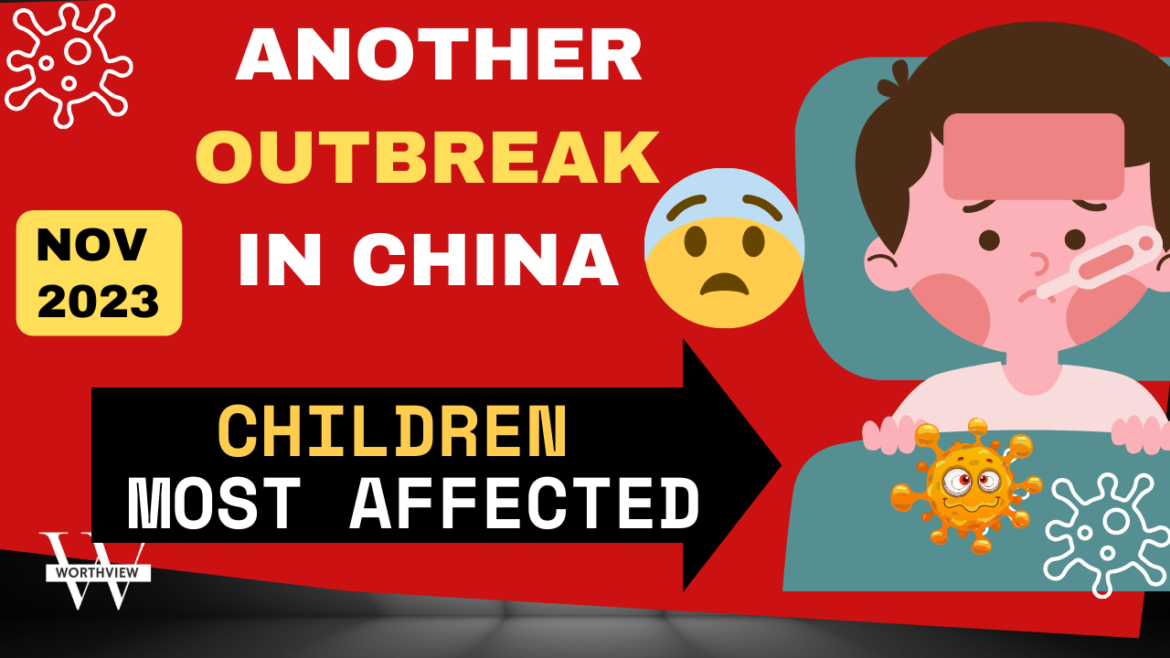Since October 2023, there has been an increase in cases of respiratory illnesses in China, particularly among children. Hospitals in Beijing and Liaoning Province have reported a surge in admissions of children with pneumonia-like symptoms, including high fever, lung inflammation, and shortness of breath. The outbreak has caused concern among parents and public health officials, as the cause of the pneumonia remains unknown.
The World Health Organization (WHO) has requested more information from Chinese authorities about the outbreak. In a statement released on November 13, 2023, the WHO said that it was “monitoring the situation closely” and that it was “in contact with Chinese authorities to gather more information on the outbreak.”
Some experts have speculated that the outbreak may be caused by a new or unknown virus. However, Chinese authorities have said that they have not detected any new pathogens. They have also said that the outbreak is likely due to the easing of COVID-19 restrictions, which has allowed more respiratory viruses to circulate.
The outbreak has led to school closures in some areas of China. Parents are also taking precautions to protect their children, such as avoiding crowded places and wearing masks.
Symptoms
The affected children are presenting with a range of symptoms, including:
- High fever
- Lung inflammation
- Shortness of breath
- Cough
- Nausea
- Vomiting
- Diarrhea
Cause
The cause of the pneumonia outbreak is still unknown. However, some experts have speculated that it may be caused by a new or unknown virus. Other possible causes include:
- Mycoplasma pneumoniae, a bacterium that can cause pneumonia
- Influenza virus
- Respiratory syncytial virus (RSV)
- Adenovirus
Impact
The outbreak has had a significant impact on China’s healthcare system. Hospitals are overwhelmed with sick children, and some schools have been closed to prevent the spread of the illness. The outbreak has also caused anxiety and fear among parents, who are concerned about the health of their children.
Response
The Chinese government is taking steps to contain the outbreak, including:
- Increasing surveillance of respiratory illnesses
- Providing treatment to affected children
- Advising parents on how to protect their children from respiratory viruses
The World Health Organization (WHO) is also monitoring the situation closely and is in contact with Chinese authorities to gather more information.
Recommendations
The following recommendations can help to prevent the spread of respiratory illnesses:
- Wash your hands frequently with soap and water or use an alcohol-based hand sanitizer.
- Avoid close contact with sick people.
- Cover your mouth and nose with a tissue when you cough or sneeze.
- Dispose of used tissues properly.
- Stay home if you are sick.
- Get vaccinated against influenza.
The Chinese government is taking steps to contain the outbreak. They have increased surveillance of respiratory illnesses and are providing treatment to affected children. They are also advising parents on how to protect their children from respiratory viruses.
The outbreak is a reminder of the importance of public health surveillance and the need for a rapid response to emerging infectious diseases. It is also a reminder of the importance of personal hygiene and respiratory etiquette, such as covering your mouth and nose when you cough or sneeze.



